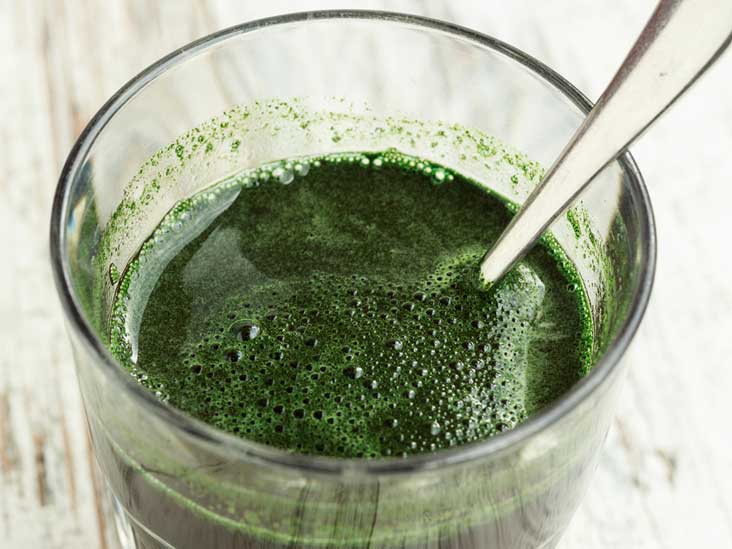By Kerri-Ann Jennings, MS, RD on April 8, 2017
Move over spirulina, there’s a new algae in town — chlorella. This nutrient-dense algae has been receiving a lot of buzz for its health benefits.
Furthermore, as a supplement, it has shown promise in improving cholesterol levels and ridding the body of toxins.
This article tells you all you need to know about chlorella, including what it is, the research behind its health claims and how to take it as a supplement.
What Is Chlorella?
Chlorella is a single-celled, green freshwater algae (1).
There are over 30 different species, but two types — Chlorella vulgaris and Chlorella pyrenoidosa — are most commonly used in research (2).
Because chlorella has a hard cell wall that humans cannot digest, you must take it as a supplement to reap its benefits (3).
It’s available in capsule, tablet, powder and extract form (3).
In addition to being used as a nutritional supplement, chlorella is also used as a biodiesel fuel (4).
Interestingly, studies indicate it can have many health benefits. Here are 9 of them.
1. Very Nutritious
Chlorella’s impressive nutritional profile has led some to call it a “super food.” While its exact nutrient content depends on growing conditions, the species used and how supplements are processed, it’s clear it packs several beneficial nutrients.
They include:
- Protein: Chlorella is 50–60% protein. What’s more, it’s a complete protein source, meaning it contains all nine essential amino acids (3, 5).
- Vitamin B12: Some chlorella varieties may also contain vitamin B12, but more studies are needed (6).
- Iron and vitamin C: Chlorella can be a good source of iron. Depending on the supplement, it may provide anywhere from 6–40% of your daily need. It’s also an excellent source of vitamin C, which helps you absorb iron (1, 3, 7).
- Other antioxidants: These tiny green cells provide a wide range of antioxidants (1, 3).
- Other vitamins and minerals: Chlorella provides small amounts of magnesium, zinc, copper, potassium, calcium, folic acid and other B vitamins (1, 3, 8).
- Omega-3s: As with other algae, chlorella contains some omega-3s. Just 3 grams of chlorella delivers 100 mg of omega-3s (8).
- Fiber: In large quantities, chlorella can be a good source of fiber. However, most supplements don’t provide even 1 gram of fiber per dose (1, 8).
2. Binds to Heavy Metals, Aiding Detox
Chlorella has gotten some buzz for its ability to help the body “detox.” In fact, animal studies indicate that it’s effective at helping remove heavy metals and other harmful compounds from the body (9, 10, 11).
Heavy metals include some elements that are essential in small amounts, such as iron and copper, but these and other heavy metals like cadmium and lead can be toxic in larger amounts.
While it’s rare for people to have dangerous levels of heavy metals in their system, people can get exposed to heavy metals through pollution or certain jobs such as mining (12).
In animals, algae, including chlorella, has been found to weaken the heavy metal toxicity of the liver, brain and kidneys (13).
Furthermore, chlorella has been shown to help lower the amount of other harmful chemicals that are sometimes found in food. One of these is dioxin, a hormone disruptor that can contaminate animals in the food supply (14, 15).
Based on this evidence, it seems that chlorella could help enhance your body’s natural ability to clear toxins.











